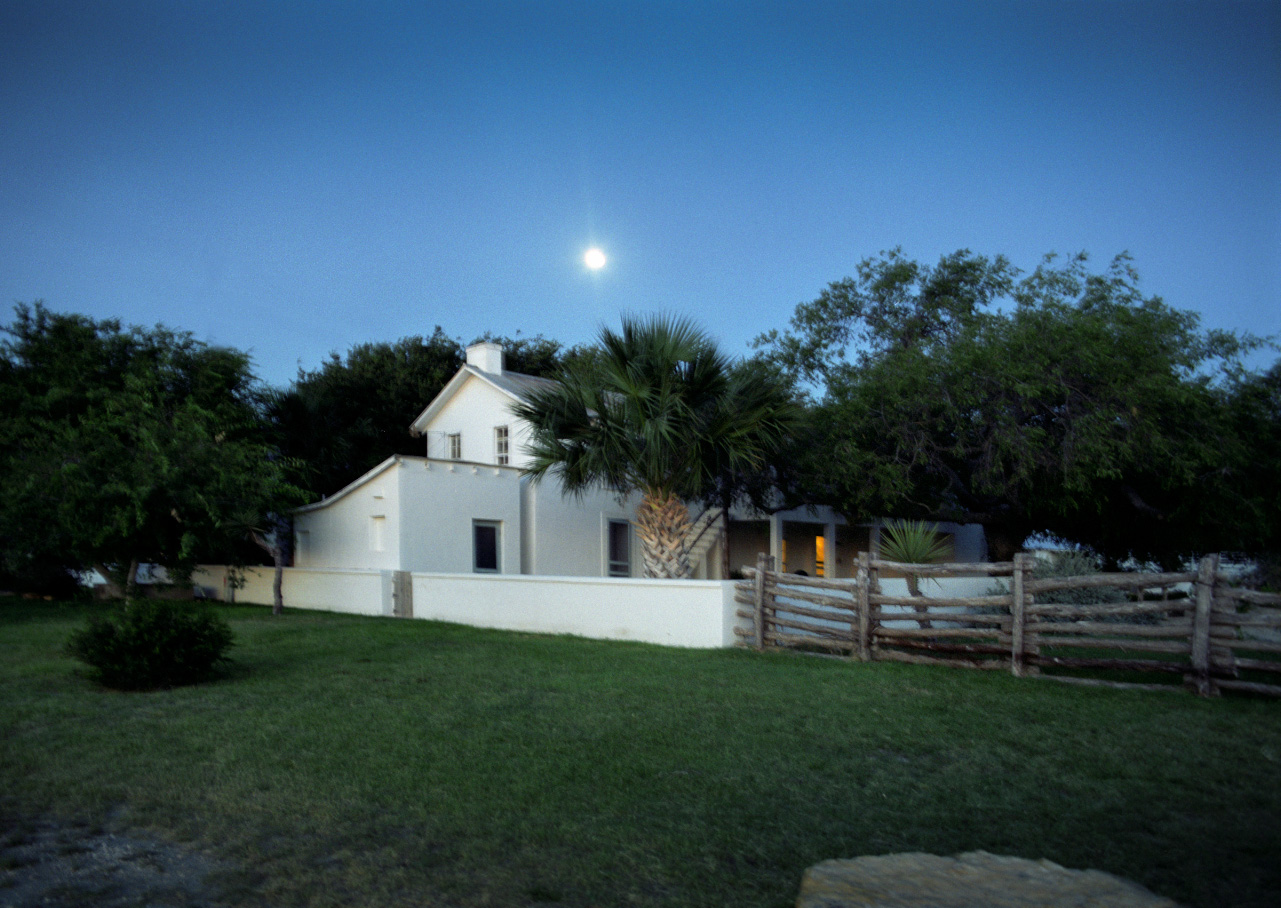May 13, 2021
Media Contact: TPWD News, Business Hours, 512-389-8030
AUSTIN – San Pedro Ranch, located near Carrizo Springs, will be awarded the state’s highest honor for private land conservation, and a $10,000 award, at the Lone Star Steward Virtual Awards Banquet on May 27. Anyone can join the livestreamed banquet and can find more information on how to tune in, along with information on other award winners, on the Lone Star Land Steward page of the Texas Parks and Wildlife Department (TPWD) website.
The ranch is owned by siblings Joseph Fitzsimons and Pamela Fitzsimons Howard and their families. Their father Hugh Fitzsimons Jr. embraced a holistic approach at the ranch in the 1970s. He believed if you improved native habitat, the ecosystem would not only lead to more wildlife, but to healthier livestock. Today, the family approach shows how cattle, hunting and other activities can all coexist in a sustainable way that benefits the native ecology and a wide range of wildlife species.
Fitzsimons’ children and their children’s families continue that land ethic today.
San Pedro Ranch is a unique confluence of geologic, riparian, biologic, herbaceous and cultural resources. The property sits atop an ancient seabed, on the southern edge of Texas’ Tamaulipan and Chihuahuan Biotic Provinces. Its 23,000 acres are covered by 26 different soil types and 36 different plant communities. The land has been inhabited over time by four distinct cultural groups. On the map, it straddles Dimmit and Maverick counties, about 30 miles southwest of Carrizo Springs, near the Rio Grande River.
The ranch is home to a herd of registered Beefmaster cattle, a breed known for being heat, drought and insect resistant. Regenerative grazing practices coupled with prescribed burns and brush management, have helped to increase native plant diversity, water infiltration and enhance herbaceous cover.
The Fitzsimons and Howard families designed more than 100 rock and earthen structures to trap sediment, build soil and establish vegetation as part of a riparian restoration project. Over 22,000 feet of a degraded creek channel was restored across a 700-acre watershed.
Elsewhere, Ducks Unlimited helped convert a 14-acre gravel pit into an ephemeral wetland. After being hydroseeded with a seed mix of 42 native grass and forb species, the wetland serves as a wintering ground for waterfowl species.
The ranch is a stopover point along the flight corridor for many migrating birds and monarch butterflies. Butterflies will be tagged to help researchers monitor their numbers. The Fitzsimons and Howards have also compiled 90 years of rainfall data to improve management in the drought-prone region.
In addition to installing miles of water line and supplying new watering stations, the careful attention the Fitzsimons and Howards have dedicated to environmental conservation has provided habitat for dove, quail, Rio Grande wild turkey, and other rare species such as the Texas tortoise and Texas horned lizard.
A perpetual conservation easement through the Texas Agricultural Land Trust restricts industrial and commercial development and prohibits fragmentation of the ranch. The easement ensures it will remain an important ecological site and riparian corridor for native and migratory wildlife species.
The conservation success and land ethic of the Fitzsimons and Howard families earned the ranch a Lone Star Land Steward Ecoregion Award (representing South Texas) in 2016. They say they are just getting started and learning to ranch in nature’s image.
ABOUT THE AWARD
Given in honor of renowned conservationist Aldo Leopold, the prestigious award recognizes farmers, ranchers and forestland owners who inspire others with their dedication to the land, water and wildlife habitat resources in their care. In Texas, the award is presented annually by Sand County Foundation and national sponsor, American Farmland Trust, in partnership with TPWD’s Lone Star Land Steward Awards program.
“Recipients of this award are real life examples of conservation-minded agriculture,” said Kevin McAleese, Sand County Foundation President and Chief Executive Officer. “These hard-working families are essential to our environment, food system and rural economy.”
The Leopold Conservation Award in Texas is made possible thanks to the generous contributions from American Farmland Trust, TPWD, Sand County Foundation, Lee and Ramona Bass, The Cynthia & George Mitchell Foundation, Dixon Water Foundation, and McDonald’s.
In his influential 1949 book, A Sand County Almanac, Aldo Leopold called for an ethical relationship between people and the land they own and manage, which he called “an evolutionary possibility and an ecological necessity.”
Sand County Foundation presents the Leopold Conservation Award to private landowners in 22 states for extraordinary achievement in voluntary conservation.
LEOPOLD CONSERVATION AWARD PROGRAM
The Leopold Conservation Award Program is a competitive award that recognizes landowner achievement in voluntary conservation. Sand County Foundation presents the award in California, Colorado, Kansas, Kentucky, Missouri, Montana, Nebraska, New Mexico, New York, North Dakota, Oklahoma, Pennsylvania, South Dakota, Texas, Utah, Wisconsin, and in New England (Connecticut, Maine, Massachusetts, New Hampshire, Rhode Island and Vermont).
SAND COUNTY FOUNDATION
The Sand County Foundation inspires and empowers a growing number of private landowners to ethically manage natural resources in their care, so future generations have clean and abundant water, healthy soil to support agriculture and forestry, plentiful habitat for wildlife and opportunities for outdoor recreation.
AMERICAN FARMLAND TRUST
The American Farmland Trust is the only national organization that takes a holistic approach to agriculture, focusing on the land itself, the agricultural practices used on that land, and the farmers and ranchers who do the work. AFT launched the conservation agriculture movement and continues to raise public awareness through its No Farms, No Food message. Since its founding in 1980, AFT has helped permanently protect over 6.5 million acres of agricultural lands, advanced environmentally sound farming practices on millions of additional acres, and supported thousands of farm families.
TEXAS PARKS & WILDLIFE DEPARTMENT
The mission of the Texas Parks and Wildlife Department is to manage and conserve the natural and cultural resources of Texas and to provide hunting, fishing and outdoor recreation opportunities for the use and enjoyment of present and future generations.

